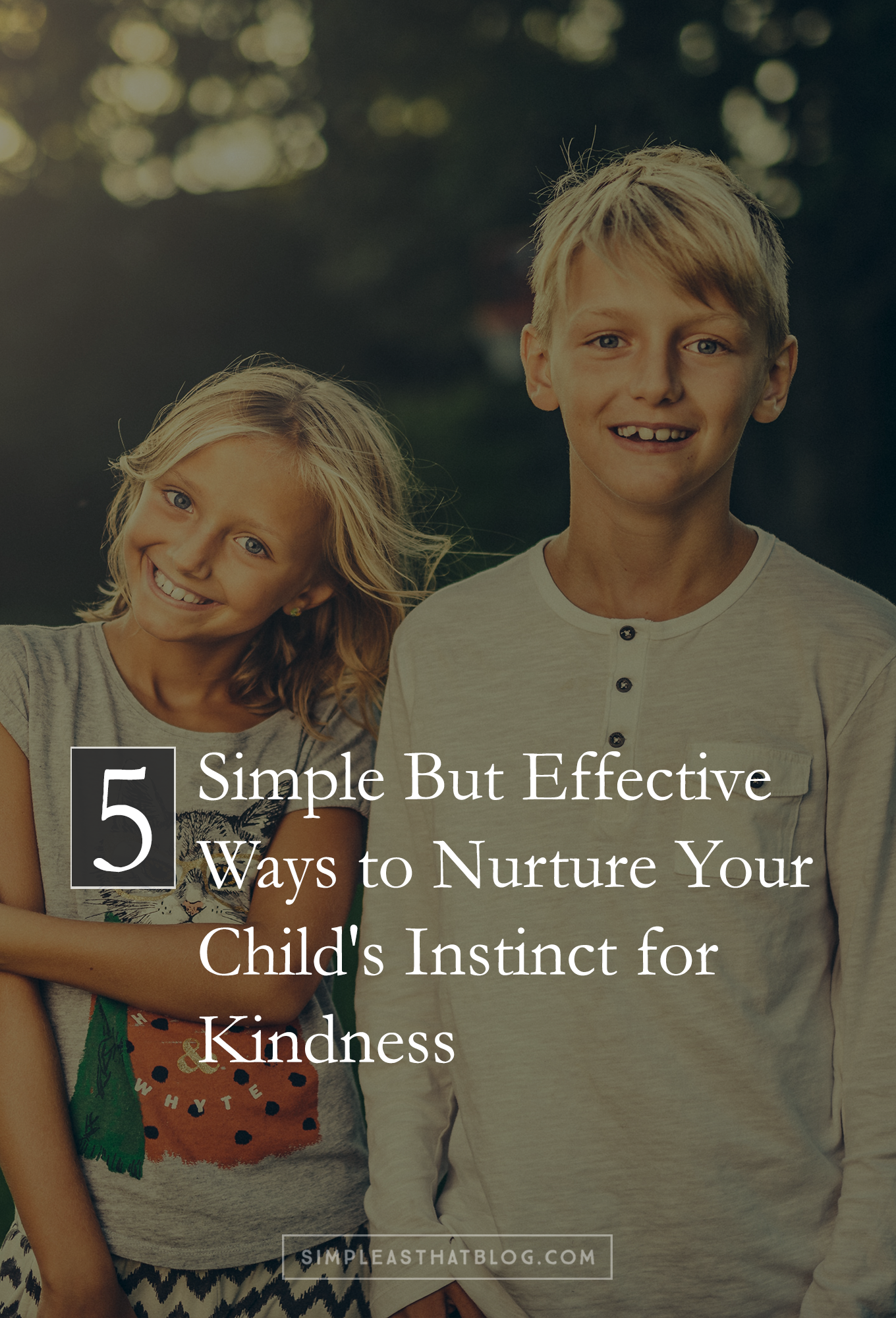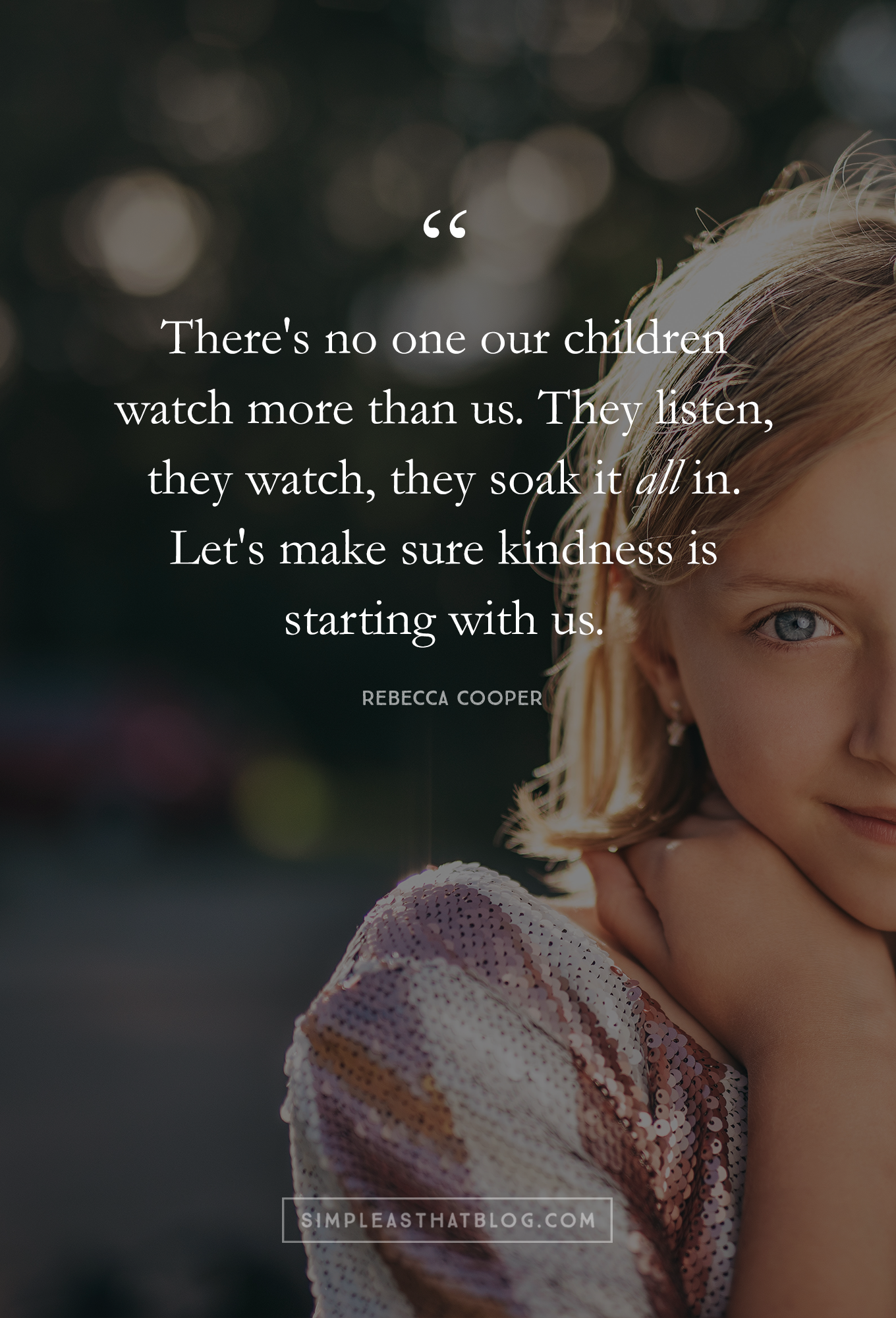Big tears streamed down her plump cheeks, and her small frame shook with each sob.
My kids and I had just arrived at the school drop-off area when we found my daughter’s little friend—a kindergartener—standing alone and afraid in front of the school.
She had just realized—as her dad pulled out of the parking lot—that she’d left her lunch and backpack in his car.
I hugged her, like anyone would, saying that I’d text her dad and that she could always get hot lunch that day.
“You’re only in kindergarten,” my daughter said to her as she rubbed her arm in a gesture of comfort. “We’re all still learning!”
I waited until our little friend’s shoulders had stopped shuddering and she’d wiped away some of the tears, and then I watched as my daughter linked their arms together and guided her toward the school. Up until the moment they were out of my sight, I could still see my daughter rubbing her friend’s arm in support.
I was touched by the solidarity my daughter had offered her friend, and I couldn’t help but pray that she never loses that innate compassion for others.
It also reminded me of all the people I know who haven’t been this lucky in their moment of need.
I have a friend whose son had to stop riding his middle-school bus because he was being picked on so badly. My friend and her husband now spend an hour and a half in the car each day driving him to and from school because they can’t trust that other kids will treat their son with the kindness we all deserve.
I have another friend whose daughter recently insisted she switch schools mid-year (can you imagine a 14-year-old asking for this?), because the “friends” she had grown up with suddenly decided to post unkind—not to mention, untrue—things about her on social media.
It’s the smallest moments, like the one I witnessed between her daughter and her friend, that become the oh-so-important building blocks of kindness and compassion that we need our children to take with them through the teen years and into adulthood.
As parents, here are five things we can do to nurture a child’s inherent instinct for kindness (before the world tells them that it’s cooler to be unkind).
5 Simple But Effective Ways to Nurture Your Child’s Instinct for Kindness
1. Witness your child’s compassionate moments
Too often we only see the negative. It makes sense, because our brains are wired to scan our environments for possible threats—for the things that are going wrong. So it’s all too easy for us as parents to fixate on our kids’ weak areas in hopes of correcting them. But first, we need to see—to witness—their moments of kindness, empathy, connection, and compassion.
2. Praise your child for the empathy he or she showed another
Next, make sure your child knows that you witnessed their kind actions. Hug them. Tell them how proud you are. Make it a big deal.
And don’t just bring it up once. Instead, use those foundational experiences as cornerstones for the traits you hope they’ll develop. Remind them often of the amazing things you’ve seen them do, and make sure they know you have every confidence that they will continue to spread that goodness around.
3. Have regular conversations about what it would feel like to walk in someone else’s shoes
I think these conversations are one of the simplest, least pushy ways we can help our kids develop empathy. When you see someone in a situation your child might not be familiar with—whether it’s a panhandler on the side of the road, an aunt or uncle who has recently been diagnosed with cancer, or even a character you see in a movie—ask them questions about how they might feel if they were in that person’s shoes.
4. Teach them that every action they take is a vote for who they will become.
I’m passionate about helping my children live with vision. I want them to be able to step back and see a bigger picture—to see where they fit into the larger world and what path they want to take as they move into the future. Their actions today, big and small, offline and online, shape the people they will be.
5. Lead with kindness yourself.
There’s no one our children watch more than us. They see when we lack compassion for our spouse, our friends, or them. They see when we stir up drama in our own social circles or when we get offended at what someone else posts online. They listen, they watch, they soak it alllll in. Let’s make sure kindness is starting with us.
Let’s teach our kids that it’s cool to be kind and that being a positive digital citizen means treating others how they’d like to be treated—online and in real life. Learn more about how to be kind online with Google’s Be Internet Awesome Family Guide at g.co/BeInternetAwesome. You can even play Interland with your kids and put your kindness skills to the test at g.co/KindKingdom.
This list is a good start, but I know there are a hundred more ways to help our kids build their empathy muscles. What are you trying in your home?





Beautiful post! Thanks for the reminder of how #ItsCoolToBeKind.
These are great pieces of advice. I always think that kindness starts with empathy. My grandmother always told me, “Do unto others as you would have them do unto you.” It made a big impression on me. But so did the fact that she modeled that behavior. If someone was rude to her, she didn’t respond with anger. She responded with kindness and later she’d say, you know, I wonder what must have happened to make that person that way. And you could tell she really felt for them. She was the best person I knew.